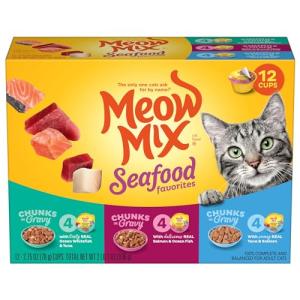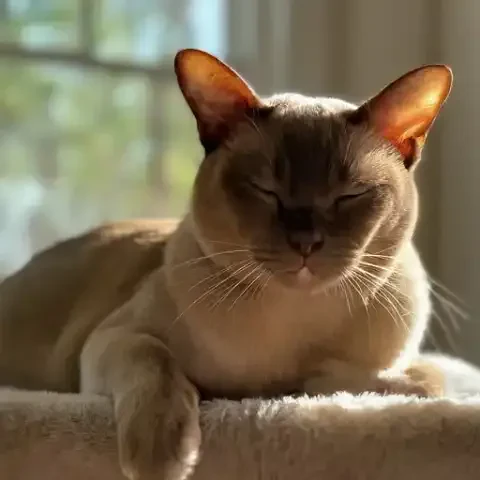We adore our cats for their soft fur, gentle purrs, and playful antics. They weave their way into our hearts and homes, becoming cherished members of our families. But amidst the cuddles and playtime, have you ever truly considered their teeth? Often overlooked in the grand scheme of feline care, dental health is a silent, yet crucially important, component of their overall well-being. We admire their sleek coats, monitor their diets, and ensure they have enriching environments, yet the health of their mouths, the very gateway to their nutrition and comfort, can sometimes be unintentionally neglected. This is not because we love them less, but perhaps because feline dental disease is a master of disguise, a subtle ailment that often progresses unnoticed until it reaches a point of significant pain and discomfort.
The statistics paint a stark picture: studies consistently show that a staggering percentage of cats, especially those over a certain age, suffer from some form of dental disease. Imagine the quiet suffering behind those purrs, the hidden discomfort masked by their stoic feline nature. Cats are masters at concealing pain, evolutionary survivors who instinctively hide vulnerability. This stoicism, while admirable, can be detrimental when it comes to dental issues. What might seem like normal feline behavior – a slight decrease in appetite, a little more quiet than usual – could be subtle indicators of underlying dental pain, pain that, if left unaddressed, can snowball into more serious health problems. This article aims to illuminate the critical importance of dental care for cats, to pull back the curtain on this often-underestimated aspect of feline health. We will reveal why it's not merely about banishing bad breath, though that’s a welcome side effect, but rather about laying a cornerstone for their overall health, comfort, and a longer, happier life. We will embark on a journey to explore the common dental problems that plague our feline companions, to understand the often-dire consequences of neglect, and, most importantly, to outline actionable steps that you, as a loving cat owner, can take to ensure your feline friend’s pearly whites – and, by extension, their overall well-being – are in top shape for years to come.
Dental care for cats is about so much more than just achieving pleasantly scented breath, although fresh breath is certainly a bonus! The real importance lies in the profound impact dental health has on a cat's overall well-being. Perhaps the most immediate and impactful consequence of dental disease is pain. Imagine having a constant toothache, a throbbing, gnawing discomfort that never truly subsides. This is the reality for many cats suffering from untreated dental problems. Whether it’s the sharp, localized pain of a broken tooth, the throbbing inflammation of infected gums, the insidious gnawing of tooth resorption, or the generalized ache of widespread periodontal disease, dental pain is a very real and often debilitating experience for our feline friends. And unlike humans who can voice their pain, cats often suffer in silence, their discomfort manifesting in subtle behavioral changes that can easily be missed or misattributed. This pain directly translates to a diminished quality of life. A cat in dental pain may experience a reduced appetite, not because they are not hungry, but because eating itself becomes a painful ordeal. They might become reluctant to groom themselves, their mouths too sensitive to properly tend to their fur. Irritability can become more pronounced, and a once playful cat might become withdrawn and reclusive, seeking solace in hiding, simply trying to cope with the persistent ache.
Beyond the immediate pain, dental disease significantly impacts a cat's ability to eat and maintain proper nutrition. Dental pain can transform mealtime from a joyful experience into an exercise in discomfort. A cat with sore teeth may exhibit a decreased appetite overall, simply eating less because every bite causes pain. They might develop a marked reluctance to eat hard kibble, preferring only soft, wet food that requires minimal chewing. You might observe them chewing cautiously, favoring one side of their mouth over the other, or even dropping food mid-meal as pain interrupts their eating process. Over time, this difficulty eating, driven by dental discomfort, can lead to a cascade of negative consequences. Reduced food intake can result in weight loss, which, while sometimes seen as desirable in overweight cats, can be detrimental and indicative of illness when unintentional. Malnutrition can weaken their immune system, making them more susceptible to other illnesses and further compounding their health challenges. Adequate nutrition is the bedrock of overall health, and dental disease, by directly hindering a cat's ability to eat comfortably and effectively, directly undermines this vital foundation.
Perhaps the most insidious consequence of neglecting feline dental health is the mouth-body connection – the systemic health links that extend far beyond the oral cavity. The mouth is not an isolated system; it is intricately connected to the rest of the body. In the case of dental disease, bacteria proliferating in the mouth, in plaque and tartar, and within infected gums, can gain access to the bloodstream. This bacterial invasion can act as a silent, slow-burn assault on other vital organs. Dental disease in cats has been increasingly linked to serious systemic conditions. Heart disease, particularly endocarditis (inflammation of the heart's inner lining), is a recognized risk, as bacteria from the mouth can travel to the heart and damage heart valves. Kidney disease, already a common concern in older cats, can be exacerbated by chronic inflammation stemming from dental disease, placing additional strain on these vital organs. Similarly, liver disease can be influenced by the systemic inflammatory burden caused by oral infections. Emerging research even suggests potential links between dental disease and complications in managing diabetes in cats, highlighting the complex and far-reaching impact of oral health on overall metabolic function. This mouth-body connection underscores a vital truth: good oral health is not merely about teeth and gums; it is inextricably linked to overall systemic health and is a crucial component of preventative care for your feline companion.
Ultimately, untreated dental disease significantly diminishes a cat's overall quality of life. The persistent pain, the struggle to eat, the potential systemic health complications – all contribute to a decline in their well-being. A cat constantly battling dental discomfort is unlikely to be as playful, as affectionate, or as vibrant as a cat with a healthy mouth. The long-term consequences of neglecting dental health can sadly shorten a cat's lifespan. The cumulative stress of chronic pain, infection, and systemic strain can take a toll on their bodies, potentially accelerating age-related decline and increasing susceptibility to life-limiting illnesses. Conversely, proactive dental care, from consistent home brushing to regular professional cleanings, is an investment in your cat's future, a commitment to their long-term well-being. By prioritizing their dental health, you are not just ensuring fresher breath and whiter teeth; you are actively contributing to a happier, healthier, and longer life for your beloved feline companion, gifting them years of comfortable purrs and joyful companionship.
To effectively protect our feline companions from the silent suffering of dental disease, it’s crucial to understand the most common dental ailments they face. Periodontal disease stands as the most prevalent dental problem in cats, a progressive condition that begins subtly but can escalate to significant damage if left unchecked. It all starts with plaque, that sticky, colorless film of bacteria that constantly forms on teeth after eating. When plaque is not removed regularly through brushing or professional cleaning, it hardens into tartar, a rough, porous substance that clings stubbornly to the tooth surface, especially along the gumline. Tartar provides an even more hospitable surface for bacteria to accumulate and thrive. This bacterial buildup triggers gingivitis, the initial stage of periodontal disease, characterized by inflammation of the gums. Gingivitis is often reversible with prompt and thorough dental care in its early stages. However, if gingivitis is left untreated, the inflammation progresses deeper, leading to periodontitis. Periodontitis involves damage to the supporting structures of the teeth – the ligaments that anchor teeth in place and the bone that surrounds and supports the tooth roots. This is where the irreversible damage occurs. The symptoms of periodontal disease are progressive and often initially subtle. Early gingivitis may manifest as red, swollen gums, particularly along the gumline. As the disease progresses, you might notice bleeding gums, especially when gently touched or brushed. Bad breath, or halitosis, becomes increasingly noticeable as bacteria proliferate. Tartar buildup becomes visually apparent as a yellow or brown crust on the teeth. As periodontitis advances, gums may begin to recede, exposing more of the tooth root. Loose teeth, tooth loss, and ultimately, significant pain become hallmarks of advanced periodontal disease. If periodontal disease remains untreated, the irreversible damage to teeth and supporting tissues continues, leading to chronic pain, tooth loss, and the potential for systemic complications as bacteria enter the bloodstream.
Tooth resorption, also known as feline odontoclastic resorptive lesions (FORL), is another incredibly common and often painful dental condition in cats. Unlike periodontal disease, which is an external assault on the teeth, tooth resorption is an internal breakdown of the tooth structure. In this process, cells called odontoclasts, which are normally involved in tooth remodeling, begin to inappropriately break down the hard tissues of the tooth, starting from within. This is a progressive and often intensely painful condition, and alarmingly, the exact cause is not fully understood, although various factors like diet, genetics, and inflammation are suspected to play a role. Tooth resorption is remarkably prevalent, affecting cats of all ages, breeds, and dietary backgrounds. The symptoms of tooth resorption can be deceptively subtle, especially in the early stages. Initially, you might see small defects or lesions appearing at the gumline, often resembling tiny pinkish spots or indentations. As the resorption progresses, pain becomes more evident, although cats are masters at masking discomfort. Pain may manifest as a reluctance to eat hard food, a sudden onset of drooling, head shyness when you try to touch their mouth, or a subtle decrease in grooming habits. In some cases, tooth resorption lesions are only detected during professional dental cleanings and with the aid of dental X-rays, which can reveal hidden resorption deep within the tooth roots. The primary and often only effective treatment for tooth resorption is tooth extraction. Because the tooth structure is being actively broken down from within, there is no way to repair or restore the affected tooth. In very early lesions, a procedure called crown amputation might be considered, where the crown of the tooth is removed, and the root is smoothed and covered, but extraction remains the most common and reliable long-term solution. Pain management is absolutely crucial for cats with tooth resorption, both before and after any dental procedures.
Stomatitis, or feline chronic gingivostomatitis, represents a particularly severe and debilitating inflammatory condition affecting the entire oral mucosa – the gums, cheeks, tongue, and palate. It is characterized by intense and widespread inflammation throughout the entire oral cavity, making it extremely painful for affected cats. Stomatitis is often described as an immune-mediated condition, meaning it involves an overreaction of the cat's immune system to plaque bacteria. While plaque is a contributing factor, the immune response in stomatitis is exaggerated and disproportionate, leading to the severe tissue inflammation. Feline calicivirus, a common respiratory virus in cats, is suspected to play a role in some cases of stomatitis, and cats infected with feline leukemia virus (FeLV) or feline immunodeficiency virus (FIV) are also predisposed to developing this condition. The symptoms of stomatitis are dramatic and distressing. Severe bad breath, often overpowering and foul-smelling, is a hallmark sign. Excessive drooling, often tinged with blood due to the inflamed tissues, is common. Cats with stomatitis exhibit a pronounced reluctance to eat, often to the point of refusing food altogether, leading to rapid weight loss. They may paw frantically at their mouths, vocalize in pain, and become withdrawn and depressed, often hiding away to avoid interaction. Upon oral examination, the tissues of the mouth appear intensely red, raw, and profoundly inflamed, extending beyond just the gumline to involve the cheeks, tongue, and palate. Treatment for stomatitis is often complex and challenging, requiring a multifaceted approach. Pain management is paramount, as these cats are in significant discomfort. Antibiotics are typically used to control secondary bacterial infections that often complicate the condition. Corticosteroids or other immunosuppressant medications are frequently prescribed to modulate the overactive immune response. Professional dental cleanings are often part of the management plan, but unlike periodontal disease, cleaning alone is rarely sufficient to control stomatitis. In severe and refractory cases, tooth extractions, ranging from partial to full mouth extractions, are often considered the most effective long-term solution. Removing the teeth, and thus the plaque surfaces that trigger the immune overreaction, can paradoxically lead to a dramatic improvement in stomatitis symptoms in many cats.
Finally, gingivitis, while often considered the early stage of periodontal disease, deserves specific mention as it is a very common and often reversible condition. Gingivitis, simply put, is inflammation of the gums, the soft tissues surrounding the teeth. It is almost always caused by plaque buildup along the gumline, irritating the delicate gum tissues. The good news about gingivitis is that in its early stages, it is often reversible with diligent dental care. The symptoms of gingivitis are typically milder than the more advanced dental diseases. You might notice redness along the gumline, where the gums meet the teeth. The gums may appear slightly swollen and puffy, rather than the normal, healthy pink and tightly adhered gum tissue. There might be a subtle increase in bad breath, though often less pronounced than in periodontitis or stomatitis. Importantly, the gums may bleed slightly when brushed or even gently touched. Treatment for gingivitis in its early stages focuses on removing the plaque buildup that is causing the inflammation. A professional dental cleaning by a veterinarian is essential to remove tartar and plaque from both above and below the gumline. Following a professional cleaning, establishing a consistent home dental care routine, particularly daily toothbrushing, is crucial to prevent plaque from re-accumulating and gingivitis from progressing to irreversible periodontitis. Dental diets and treats designed to help reduce plaque buildup can also be helpful adjuncts in maintaining gingival health and preventing the recurrence of gingivitis.
Recognizing dental problems in your cat at home is key to early intervention and preventing more serious issues. While cats are masters of disguise, certain subtle changes in their behavior and physical presentation can serve as red flags. One of the earliest and most telling signs of dental trouble often manifests as changes in eating habits. A previously enthusiastic eater might exhibit a decreased appetite, becoming less interested in their food or eating significantly smaller portions. A pronounced reluctance to eat dry kibble, a dietary staple for many cats, can be a strong indicator of dental pain, as chewing hard food becomes uncomfortable. You might observe them chewing only on one side of their mouth, attempting to avoid painful areas, or even dropping food from their mouth while eating. Eating more slowly than usual, or a sudden loss of interest in their favorite treats can also be subtle clues that something is amiss in their mouth.
Beyond eating, behavioral changes can also signal dental problems. Increased drooling, especially if the saliva is bloody or foul-smelling, is a red flag. Pawing at the mouth or rubbing their face against furniture might indicate discomfort or irritation. Head shyness, a reluctance to be touched around the face or mouth, is a common sign of oral pain. A normally social and interactive cat might become more irritable, withdrawn, or start hiding away more frequently, again, often masking dental discomfort. Even a decrease in their usual grooming habits can be a subtle indicator, as a painful mouth can make self-grooming a less appealing activity. Finally, and perhaps most obviously, visual signs within the mouth itself should prompt immediate concern. Persistent bad breath, halitosis that goes beyond typical “cat breath,” is a strong indicator of bacterial buildup and potential infection. Red or swollen gums, particularly along the gumline, are a clear sign of gingivitis or more advanced periodontal disease. Bleeding gums, even with gentle touch, are never normal and warrant investigation. Yellow or brown tartar buildup on the teeth is visually apparent and indicates a need for professional dental cleaning. Loose or missing teeth are advanced signs of periodontal disease. And perhaps most concerning, visible lesions or holes near the gumline, especially those pinkish or indented, are often indicative of tooth resorption and require urgent veterinary attention. Any swelling or lumps in the mouth or face are also red flags that demand prompt veterinary examination to rule out serious conditions. Being observant of these changes in your cat's behavior and oral appearance is the first and most crucial step in ensuring their dental health and comfort.
The cornerstone of preventative dental care for cats, and the most effective daily defense against dental disease, is toothbrushing. Just as it is for humans, regular toothbrushing is the gold standard for removing plaque and preventing tartar buildup in cats. By physically removing plaque before it hardens into tartar, you disrupt the bacterial accumulation that fuels gingivitis and periodontitis. Introducing toothbrushing to a cat, particularly an adult cat who is not accustomed to the routine, requires patience and a gradual approach. Positive reinforcement is key. Start slowly, perhaps just by getting your cat used to having your fingers around their mouth, rewarding them with treats and praise. Gradually introduce pet-specific toothpaste, letting them lick it from your finger. Never use human toothpaste, as it contains ingredients that are toxic to cats, such as fluoride and xylitol. Once they are comfortable with the toothpaste, gently introduce a soft-bristled pet toothbrush or a finger brush. The brushing technique itself is simple: use gentle circular motions along the gumline, focusing on the outer surfaces of the teeth, where plaque tends to accumulate most readily. While aiming for daily brushing is ideal, even brushing a few times a week provides significant benefits and is far better than no brushing at all. Consistency is more important than perfection; even brief, gentle brushing sessions are valuable in maintaining their oral hygiene. Utilize tools specifically designed for cats: soft-bristled pet toothbrushes, finger brushes for sensitive mouths, and pet-specific toothpaste, ideally flavored options like chicken or fish to increase palatability and make the experience more positive for your feline friend.
Beyond toothbrushing, dental diets and treats can serve as helpful adjuncts in maintaining feline oral health. Dental diets are specifically formulated kibble designed to help mechanically scrape plaque and tartar from teeth as the cat chews. They often feature larger kibble sizes and unique shapes that encourage chewing action, and some are coated with enzymes designed to help break down plaque. While dental diets can be beneficial, they are not a substitute for regular toothbrushing or professional dental cleanings, but rather a supplemental tool. Dental treats operate on a similar principle, designed to mechanically clean teeth as the cat chews. Like dental diets, some dental treats also contain enzymatic ingredients to help reduce plaque and bacteria. Dental treats should be used in moderation as treats, not as a primary source of dental care, and should be part of a comprehensive approach. When selecting dental diets and treats, look for products that carry the Veterinary Oral Health Council (VOHC) seal of acceptance. This seal indicates that the product has been independently tested and proven to be effective in reducing plaque and tartar buildup, providing assurance of their dental benefit.
Dental water additives and rinses offer another layer of supplemental dental care. Dental water additives are liquid solutions that you add to your cat's drinking water. They often contain enzymes or chlorhexidine, ingredients designed to help reduce plaque bacteria and freshen breath. Water additives are incredibly easy to use, simply requiring addition to the water bowl, making them a convenient option for some cat owners. However, their effectiveness varies, and some cats may find the taste or smell unpalatable, potentially leading to decreased water intake. Dental rinses and gels, typically containing chlorhexidine, are designed to be applied directly to the gums. These can be particularly helpful for localized gingivitis or targeted application to areas of concern. However, application can be challenging in some cats, and it requires handling their mouth directly, which some cats may resist. While water additives and rinses can be considered as additional tools, they are generally less effective than toothbrushing and professional cleanings in preventing and managing dental disease, and should not be seen as primary methods of dental care.
While consistent home dental care is vital, professional veterinary dental care is absolutely essential for comprehensive feline oral health. Annual or bi-annual veterinary dental check-ups are a critical component of preventative care. During these routine exams, your veterinarian can perform a thorough oral examination, detecting early signs of dental disease that you, as an owner, might easily miss. The veterinarian will conduct a comprehensive oral exam, visually inspecting the teeth, gums, and other oral tissues. They will also palpate the teeth, checking for any looseness or abnormalities, and examine for any masses or swellings in the mouth. Based on their exam findings, your veterinarian will provide personalized recommendations for home dental care and advise on the necessity of professional dental cleanings, tailored to your cat's individual needs and oral health status.
Professional dental cleaning, also known as dental prophylaxis, performed under anesthesia, is an indispensable procedure for maintaining feline dental health and treating existing dental disease. The reason anesthesia is absolutely necessary for a thorough and effective dental cleaning in cats boils down to two key factors: thoroughness and safety. A significant portion of dental disease in cats occurs below the gumline, where plaque and tartar accumulate unseen and where periodontal disease takes root. Effective cleaning requires scaling and root planing – meticulously removing plaque and tartar not just from the visible tooth surfaces, but crucially, from underneath the gumline in the gum pockets where bacteria thrive. This subgingival cleaning is impossible to perform effectively and safely in an awake cat. Anesthesia allows the veterinarian and veterinary dental team to perform this thorough cleaning painlessly and without causing stress or anxiety to the cat. Moreover, anesthesia ensures the safety of both the cat and the dental team. Cats, even the most docile, are unlikely to willingly cooperate with the probing, scaling, and potential extractions necessary for a comprehensive dental procedure. Anesthesia eliminates the risk of injury to the cat from struggling or biting during the procedure and allows the dental team to work efficiently and meticulously, ensuring a complete and effective cleaning and treatment. A professional dental prophylaxis is a multi-step procedure that goes far beyond a simple "teeth cleaning" as commonly understood. It typically begins with pre-anesthetic bloodwork to ensure your cat is healthy enough to undergo anesthesia. Safe and carefully monitored anesthetic protocols are used, with continuous monitoring of vital signs throughout the procedure. Scaling and root planing are performed to meticulously remove plaque and tartar both above and below the gumline. Following scaling, the teeth are polished to smooth the tooth surfaces, making it harder for plaque to re-adhere. A detailed dental exam and probing of gum pockets around each tooth are conducted to assess the extent of periodontal disease. Full mouth dental X-rays are absolutely essential and considered the standard of care in feline dentistry. X-rays allow the veterinarian to visualize the tooth roots and surrounding bone under the gumline, revealing hidden problems like tooth resorption, bone loss, and other issues that are completely invisible to the naked eye. Based on the exam and X-ray findings, any necessary treatment for existing dental disease is performed during the same anesthetic event. This might include tooth extractions for severely diseased teeth, periodontal surgery to address gum recession or deep pockets, or other specific treatments as indicated. In some cases, a fluoride treatment or dental sealant might be applied after cleaning and polishing to strengthen enamel and reduce future plaque buildup. The frequency of professional dental cleanings varies depending on each cat's individual needs, breed predispositions, age, and the effectiveness of home dental care. Your veterinarian is best positioned to recommend an appropriate cleaning schedule, but annual professional cleanings are often recommended for most adult cats, and in some cases, more frequent cleanings, every 6 months or even more often, might be necessary to manage periodontal disease or other dental conditions effectively.
Remember, dental disease in cats is progressive and painful. Early intervention is always key to preventing more serious and irreversible damage. Be vigilant for red flags that indicate your cat might be experiencing dental problems. A sudden onset of bad breath, noticeable changes in eating habits, particularly a reluctance to eat hard food or a decreased appetite, drooling, pawing at the mouth, or head shyness when you touch their face are all signs that warrant a prompt veterinary visit. Visible bleeding from the mouth, red, swollen, or painful gums, loose or missing teeth, and any swelling or lumps in the mouth or face are all urgent red flags requiring immediate veterinary attention. Even if you diligently practice home dental care, if you observe any of these signs, or if you simply suspect that your cat might be experiencing dental pain, don't hesitate to seek veterinary care.
Prioritizing your cat's dental health is not just about keeping their breath smelling fresh; it is a fundamental aspect of responsible pet ownership, an act of love that directly impacts their comfort, prevents pain, safeguards their overall systemic health, and ultimately adds years of happy purrs to your shared life. Dental disease, while incredibly common in cats, is also largely preventable and manageable with a proactive approach. By incorporating consistent home dental care into your daily routine, scheduling regular veterinary dental check-ups, and being vigilant for early signs of dental problems, you can empower your feline friend to enjoy a lifetime of healthy smiles – and a lifetime of joyful, comfortable companionship by your side.







